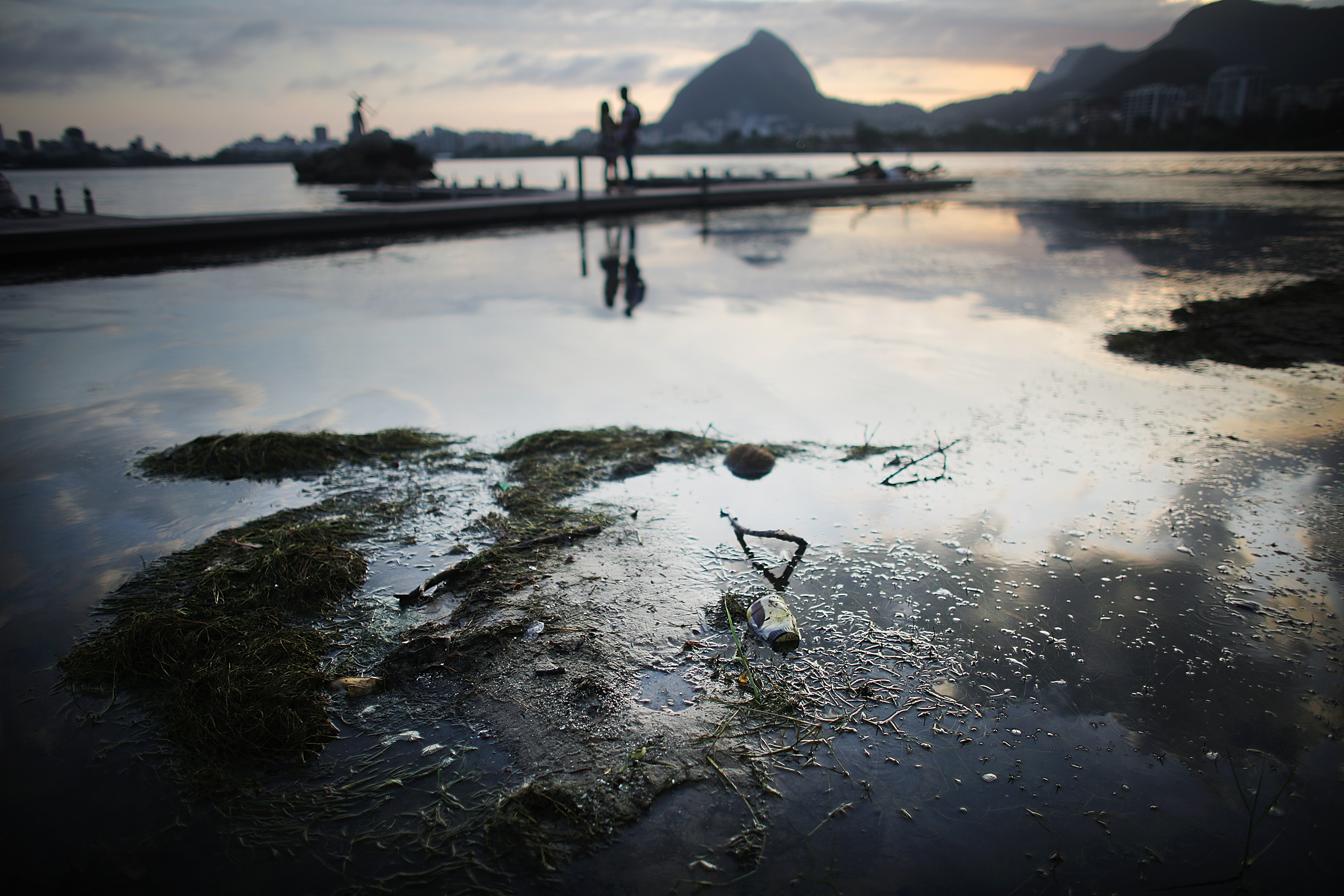Why this might turn out to be the worst Olympics ever
Barely anything seems to be going the right way and the country, the state, the city and the committee are doing nothing to help themselves. It would be a huge achievement in itself if the Rio Games kick-off but it is highly unlikely they would be able to do better than the ‘worst ever’.

About two weeks ago, a jaguar which was part of an Olympic torch relay in the Brazilian city of Manaus was shot dead after it attacked a soldier post the ceremony. The animal was chained and photographed alongside soldiers and a torch runner holding the Olympic flame which led to the animal turn aggressive.
For Rio 2016’s organising committee, this issue pales in comparison to the bigger crisis they face. It is an indication of the shocking planning and lack of foresight displayed in the build-up to the Games and the even poorer execution of the plans they made.
Rio de Janeiro, when awarded the hosting rights of the Games of the XXXI Olympiad, in 2009, had a booming economy, robust growth, low unemployment numbers, massive oil resources and a festive culture that would awe athletes and tourists alike. With less than five weeks to go for the opening ceremony, none of them seem true, or visible.
Controversies and issues before an Olympics isn’t something new. Every host has had it’s troubles and fears, but the International Olympic Committee(IOC) and the organising committee have always somehow pulled through. Beijing had pollution, Vancouver didn’t have sufficient snow. London and Sochi had their security issues, but Games survived. Rio on the other hand seems to have more on its plate than it can handle and is working out to be a disaster in the making.
Meanwhile, the citizens seem to have lost the enthusiasm they displayed when they danced at the Copacabana beach after Rio won the bid
An economy in the dumps
Brazil’s economy is struggling, with recession and inflation, unemployment and a GDP shrinking faster than Usain Bolt covers 100 metres. Adding to it, the state of Rio de Janeiro has declared financial emergency, and requested additional funds to prevent “a total collapse in public, security, health, education, transport and environmental management." That money however has still not been received.. Ticket sales, which were supposed to meet 17% of the budget needs, has been extremely sluggish.
Also, read: Road to Rio: The great Indian dream
All this means the number of volunteers had been dropped from 70,000 to 50,000, number of transportation vehicles has been slashed by a 1000, and a subway extension to the Olympic Park may never be completed. The athletes will have no TV in the athletes’ village, but they will at least be thankful that they won’t have to pay for their own air-conditioning.
A never ending political quagmire
To add the excitement and build-up for the Games, the Brazilian Senate voted to impeach President Dilma Rousseff in early May, following a huge saga of political corruption and bribery. The scandal went as far as former President and hugely popular Mr Luiz Inácio Lula da Silva , further disillusioning the entire nation. Her successor Michel Temer’s closest allies have been charged with corruption, as have countless other politicians associated with Petrobras, the Brazilian petroleum behemoth. The Car Wash scandal, as it has been popularly monikered, engulfed the whole nation, with Brazilians having taken to the streets for what was clearly not for the carnival.
The political uncertainty and its economic and psychological toil on the Brazilian people, coming at the back of a hugely expensive FIFA WC has led to questions. Why is a country which is in such a political crisis hosting what is the most awaited global sporting event. Unfortunately, the answers seem elusive.

 © Getty
© GettySecurity- or rather the lack of it.
Rio de Janeiro was as famous for Christ the Reedemer as for it’s crime rates. With alarmingly high numbers of murders, robberies, muggings, kidnapping and gang violence prevalent in the city, everyone attending the Games would be in serious threat. Security, obviously, needs to be beefed up and tight.
That apparently, hasn’t happened. A few weeks ago, medal winning paralympian Liesl Tesch was mugged in the city at gun-point. A few members of the Spanish sailing team also faced a similar experience in May. More embarrassment followed, when a dismembered foot and another unidentified body part washed up on the shore in front of the Olympic Beach Volleyball Arena.
A sailor saw a human arm in the water in February, but even worse is the sewage floating in the water
The economic crisis has its effects after all, and the cops of Rio aren’t being paid their dues. Several officers haven’t been paid over-time for months and salaries have been slashed, leading to protests in front of the State Assembly. A group of cops even held a huge sign at Rio’s international airport, saying “WELCOME TO HELL: police and firefighters don’t get paid, whoever comes to Rio de Janeiro will not be safe.” If this situation continues, the motivation of police officers on duty during the Games and even the number that will turn up, is in doubt. The IOC must be spending sleepless nights.
The water of the city, and the perils it brings
Most water bodies around Rio are polluted, with garbage and human waste. The city lacks a good sanitation system, and wastes from hospitals and homes enter streams and rivers, including tyres, mattresses and even human and dog carcasses. This is alarming in itself, but even worse is the discovery of the long-distance swimming, rowing, and canoe venues being in a similar state. A sailor saw a human arm in the water in February, but even worse is the sewage floating in the water. If the state of the water is not improved vastly, the athletes stand the risk of competing in polluted, garbage and sewage filled water.
Stop-gap measures like “eco-boats” that move around and collect large pieces of debris are in place, but how “super-bacteria” that can lead to urinary tract infections, gastrointestinal, pulmonary and bloodstream infections and meningitis will be dealt with, remains to be seen.
And of course, Zika
Probably the biggest of them all, even if spread by the famed mosquitoes of the country. Even if the World Health Organisation(WHO) and IOC officials have assured that the virus will not affect the scores of people that will visit the city, the threat is existent and huge. Brazil is a heavily hit country, and the risk of contacting it through the mosquitoes or from affected people( sex between athletes is not a secret anymore) is heavy. No athlete, or official, would want to put their spouses or their babies in danger.
The assurances by the organising committee, and their promises will not be something to be counted on by members of contingents, going by how they have dealt with other issues so far.
Adding to the existent crisis already, many superstars will be absent in the Brazilian city. Notable among them is basketball stars Stephen Curry and LeBron James, golfers Jason Day and Rory Mcllroy, cyclist Tejay van Garderen, footballer Lionel Messi, and tennis players Nick Kyrgios and Dominic Thiem.
The 2016 Games were touted to be a carnival. A celebration of sports, by the very people who knew how to do it. But as the opening ceremony comes closer, Rio is far from living up to it’s expectations. Barely anything seems to be going the right way and the country, the state, the city and the committee are doing nothing to help themselves. It would be a huge achievement in itself if the Games kick-off but it is highly unlikely they would be able to do better than the ‘worst ever’.

Comments
Sign up or log in to your account to leave comments and reactions
0 Comments